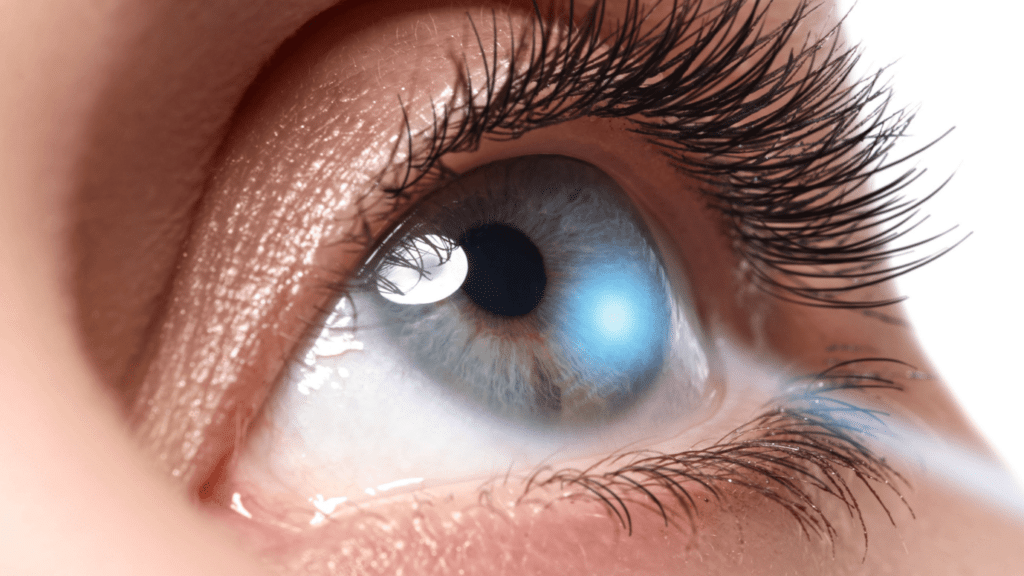SMILE (Small Incision Lenticule Extraction) is an advanced laser eye surgery that offers flapless, minimally invasive vision correction for nearsightedness and astigmatism. While the technology has proven safe and effective, your overall medical history plays a critical role in determining whether you’re a suitable candidate.
This guide explains how systemic and ocular medical conditions, medications, allergies, and past surgeries can affect your eligibility for SMILE—and what to do if you have a condition that may raise red flags.
🔍 Why Medical History Matters
Laser eye surgery is not just about your vision—it’s about the health of your entire eye and body. Certain medical conditions can:
- Affect healing and tissue response
- Increase the risk of infection or inflammation
- Interfere with tear production
- Compromise the stability or integrity of the cornea
That’s why your surgeon will thoroughly review your complete medical and ocular history before approving you for SMILE.
🧬 Systemic Medical Conditions That May Affect Eligibility
1. Autoimmune Diseases
Examples: Rheumatoid arthritis, lupus (SLE), Sjögren’s syndrome, multiple sclerosis (MS)
- Impact: These conditions can impair wound healing and increase the risk of corneal inflammation, dryness, or delayed recovery.
- SMILE Suitability: Often not recommended unless disease is well-controlled and tear film is healthy.
- Precautions: If allowed, aggressive pre/post-op lubrication and anti-inflammatory drops may be required.
2. Diabetes Mellitus
- Impact: Poorly controlled diabetes can delay healing and increase the risk of postoperative infection.
- Retinopathy risk: High blood sugar may cause diabetic retinopathy, which must be evaluated prior to surgery.
- SMILE Suitability: Eligible if diabetes is well-controlled, HbA1c is in the safe range, and the retina is stable.
3. Pregnancy and Breastfeeding
- Impact: Hormonal changes during pregnancy/lactation can temporarily alter vision and tear production.
- SMILE Suitability: Surgery is postponed until 3–6 months after breastfeeding ends and vision stabilizes.
4. Immunosuppression or Cancer Treatment
Examples: Chemotherapy, organ transplant patients, HIV
- Impact: Compromised immune systems can increase infection risk and reduce healing capacity.
- SMILE Suitability: Usually contraindicated unless patient is medically stable and approved by both ophthalmologist and primary care physician.
5. Keloid Formation or Abnormal Scarring History
- Impact: Suggests a tendency for abnormal wound healing, which can affect corneal clarity.
- SMILE Suitability: May require caution or alternative approaches.
👁️🗨️ Ocular History Factors That Affect SMILE Candidacy
1. Keratoconus or Corneal Ectasia
- Impact: Weakened or irregular corneas cannot withstand the structural changes caused by laser surgery.
- SMILE Suitability: Not eligible. Cross-linking or implantable contact lenses may be recommended instead.
2. History of Herpes Simplex or Zoster Eye Infections
- Impact: Laser surgery may trigger viral reactivation, leading to corneal inflammation or scarring.
- SMILE Suitability: Caution is required; may proceed if there has been no recurrence for at least 12 months and prophylactic antivirals are used.
3. Previous Eye Surgeries or Trauma
Examples: Retinal surgery, corneal transplants, cataract surgery, or significant blunt trauma
- Impact: May affect corneal shape, stability, or clarity.
- SMILE Suitability: Depends on the type of prior surgery; previous LASIK or RK patients are not candidates for SMILE.
4. Chronic Dry Eye Syndrome
- Impact: Dry eye can worsen postoperatively, though SMILE has a lower risk compared to LASIK.
- SMILE Suitability: Suitable for mild to moderate dry eye, but must be medically managed before surgery. Severe dry eye may disqualify a patient.
5. Uveitis or Ocular Inflammation
- Impact: Active or recurrent inflammation increases risk of complications.
- SMILE Suitability: Not recommended unless the eye has been quiet for at least 3–6 months.
💊 Medications That May Interfere with Healing
Immunosuppressants or Steroids
- Impact: Can reduce the eye’s ability to heal or fight infection.
Isotretinoin (Accutane)
- Impact: Causes severe dry eyes; surgery should be delayed for at least 6 months after stopping treatment.
Anticoagulants (Blood Thinners)
- Impact: Slightly increased risk of subconjunctival hemorrhage. Often safe but needs surgeon’s review.
Antihistamines and Antidepressants
- Impact: May exacerbate dry eye symptoms.
🤧 Allergies and Sensitivities
- Ocular Allergies: May interfere with healing and comfort post-op.
- Contact Lens Intolerance: Not a contraindication, but must be discussed—may influence recovery expectations.
- Medication Allergies: Surgeons must know if you’re allergic to common eye drops (e.g., preservatives, NSAIDs).
🧾 Summary Table: Common Medical Red Flags for SMILE
| Condition | SMILE Candidacy | Notes |
|---|---|---|
| Controlled Diabetes | ✅ Possibly eligible | Requires retinal clearance |
| Autoimmune Disease | ⚠️ High caution | Only if stable and dry eye is managed |
| Pregnancy/Breastfeeding | ❌ Not eligible | Delay until 3–6 months post-lactation |
| Keratoconus | ❌ Not eligible | Consider cross-linking or ICL |
| Chronic Dry Eye | ⚠️ Conditional | Only if mild/moderate and well-managed |
| Recent Herpes Eye Infection | ⚠️ High caution | Prophylaxis required if inactive >12 months |
| Immunosuppressed Patients | ❌ Usually not eligible | Case-by-case, with medical team clearance |
| Previous LASIK or RK | ❌ Not eligible | Cornea has already been altered |
✔️ What You Should Do
If you’re considering SMILE and have a medical condition:
- Be upfront about your medical history, including all medications and supplements.
- Share previous eye records or surgical reports, if applicable.
- Follow your specialist’s advice—your ophthalmologist may consult with your primary care doctor or specialist to coordinate care.
- Treat any active issues (dry eye, inflammation, infection) before surgery is scheduled.
Final Thoughts
Your medical history is a major factor in determining whether SMILE is safe and effective for you. While many conditions don’t automatically disqualify you, they may require additional precautions, treatment modifications, or alternative procedures.
When in doubt, the best approach is:
- Get a comprehensive evaluation from a refractive surgeon
- Be open about your full medical and ocular background
- Consider a second opinion if you’re told you’re not a candidate




